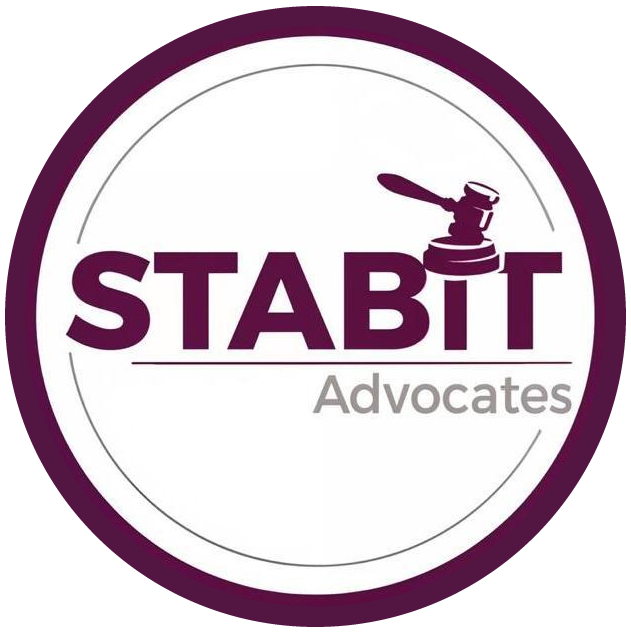The Remote Work Revolution: Navigating the Legal Landscape of the New Corporate Reality. A stabit…

Globalized Accommodation and Facilitation of Pro Se Litigants: A Legal Perspective
October 18, 2024 8:00 am
Introduction Stepping into a courtroom without a legal guide can feel like navigating a dense fog. Pro se litigants—individuals representing themselves without a lawyer—face this challenge head-on. Our insights unravel the complexities and reveal the evolving landscape supporting these brave self-advocates. As legal systems around the world strive to balance accessibility with procedural fairness, the role of pro se litigants has become an increasingly significant narrative. This article delves into the historical context, legal frameworks, challenges, benefits, and global perspectives of pro se representation, providing a comprehensive overview of this dynamic and evolving phenomenon.
Historical Context and Evolution From the courtroom to the living room, the saga of self-represented litigants is a story of empowerment. The history of pro se representation can be traced back to ancient legal systems, where individuals often had no choice but to advocate for themselves. Over time, as legal systems became more complex, the need for professional representation grew. However, the rise of the pro se movement in recent decades has seen a resurgence in self-representation, driven by factors such as increased access to legal information, the high cost of legal services, and a growing emphasis on individual rights.
In ancient Greece and Rome, individuals often represented themselves in legal matters, a practice that continued through the medieval period. However, the professionalization of the legal field in the 19th and 20th centuries led to a decline in self-representation, as legal systems became more complex and specialized. The modern pro se movement emerged in the 1960s and 1970s, driven by social and political movements advocating for greater access to justice and the democratization of legal systems. Today, the pro se movement continues to evolve, shaped by technological advancements, changing social norms, and ongoing efforts to make legal systems more inclusive and accessible.
Legal Frameworks Across Jurisdictions From the hustle of New York’s legal labyrinth to the ordered calm of Tokyo’s courtrooms, legal frameworks accommodating pro se litigants vary widely. Each jurisdiction offers a unique blend of support and hurdles, painting a diverse picture of global legal landscapes. In the United States, for example, courts have implemented various measures to assist pro se litigants, such as self-help centers, online resources, and simplified court procedures. Meanwhile, in the United Kingdom, the Small Claims Court provides a more informal setting for individuals to represent themselves in disputes. In contrast, some jurisdictions in Asia still maintain strict formalities that can pose significant challenges for pro se litigants.
In Australia, the Family Court has developed a range of resources to assist self-represented litigants, including guides, videos, and self-help centers. Similarly, in Canada, various provinces have implemented initiatives to support pro se litigants, such as the Alberta Law Libraries‘ Self-Represented Litigant Support Services. In contrast, countries like Japan and South Korea maintain more formal legal systems, where self-representation can be particularly challenging. However, even in these jurisdictions, there are ongoing efforts to improve access to justice for pro se litigants, such as Japan’s introduction of simplified court procedures for small claims and administrative matters.
Challenges Faced by Pro Se Litigants Navigating the legal maze without a map is a daunting task. From deciphering legal jargon to procedural intricacies, the challenges faced by pro se litigants highlight the importance of clear, accessible legal resources. Common challenges include understanding complex legal language, meeting procedural requirements, and presenting evidence effectively in court. These hurdles can lead to delays, increased costs, and even unfavorable outcomes. Moreover, the emotional toll of self-representation cannot be overlooked, as individuals often face significant stress and anxiety.
Pro se litigants often struggle with the procedural aspects of their cases, such as filing motions, adhering to court rules, and understanding the nuances of legal strategy. Without the guidance of a lawyer, they may make procedural errors that can jeopardize their cases. Additionally, pro se litigants may face bias from judges and opposing counsel, who may view them as less credible or competent. The emotional toll of self-representation is also significant, as individuals must navigate the stress and anxiety of legal proceedings without the support of a legal professional. This can be particularly challenging in cases involving sensitive or personal issues, such as family law or criminal matters.
Benefits and Risks of Pro Se Representation Empowerment versus vulnerability: the dual-edged sword of self-representation. While pro se litigants gain control over their cases, they also risk procedural missteps and the lack of legal expertise. The benefits of self-representation include cost savings, a sense of personal empowerment, and the ability to present one’s case directly. However, the risks are significant, including the potential for legal errors, difficulties in navigating court procedures, and the possibility of unfavourable judgments due to lack of legal knowledge. Balancing these benefits and risks requires careful consideration and, where possible, access to support and resources.
One of the main benefits of self-representation is cost savings. Hiring a lawyer can be prohibitively expensive, particularly for individuals with limited financial resources. By representing themselves, individuals can save on legal fees and reduce the overall cost of their case. Additionally, pro se litigants have the opportunity to present their case directly, allowing them to advocate for themselves and ensure that their voice is heard. However, the risks of self-representation are significant. Without the guidance of a lawyer, pro se litigants may make procedural errors that can jeopardize their case. They may also struggle to effectively present evidence, cross-examine witnesses, and make legal arguments. These challenges can lead to unfavorable outcomes, such as dismissed cases, adverse judgments, or increased legal costs.
Global Perspectives on Pro Se Litigants From the digital courtroom revolution in Estonia to grassroots legal aid movements in Kenya, global perspectives on pro se representation offer a rich tapestry of innovation and challenges. Estonia, for example, has embraced technology to facilitate access to justice, with initiatives such as online dispute resolution platforms and e-court systems. In Kenya, community-based legal aid organizations provide support to pro se litigants, helping them navigate the legal system and assert their rights. These diverse approaches highlight the importance of context-specific solutions and the potential for cross-jurisdictional learning.
In Estonia, the e-Residency program allows individuals from around the world to establish and manage businesses online, providing a model for how technology can be used to enhance access to justice. Similarly, the country’s e-court system enables individuals to file claims, submit evidence, and participate in hearings online, reducing the barriers to self-representation. In Kenya, organizations such as Kituo Cha Sheria and the Legal Resources Foundation Trust provide legal aid and support to pro se litigants, helping them navigate the legal system and assert their rights. These initiatives highlight the importance of context-specific solutions and the potential for cross-jurisdictional learning. By sharing best practices and learning from each other’s experiences, countries can develop more effective strategies for supporting pro se litigants.
Stabit Advocates’ Advocacy and Impact Stabit Advocates has emerged as a beacon for pro se litigants worldwide, championing the cause of self-representation with unwavering dedication. Their initiatives span a range of services aimed at empowering individuals to navigate the legal system confidently.
Stabit Advocates offers comprehensive online resources, including step-by-step guides, video tutorials, and virtual workshops that demystify legal processes. Their user-friendly platform ensures that even those with limited legal knowledge can access and understand essential information. Additionally, they provide personalized support through legal clinics and hotlines, where trained professionals offer guidance and answer questions.
Through partnerships with other legal aid organizations and community groups, Stabit Advocates extends its reach, providing critical support to underserved populations. Their advocacy efforts also include lobbying for legislative changes to improve the legal landscape for pro se litigants, ensuring that laws and procedures are more accessible and user-friendly.
By leveraging technology and community engagement, Stabit Advocates is breaking down barriers to justice and fostering a more inclusive legal system. Their work not only empowers individuals but also contributes to broader systemic change, highlighting the importance of accessible legal support for all.
Key Case Law and Precedents Landmark rulings have shaped the path for self-represented litigants. Key cases shed light on the evolving judicial attitude towards pro se litigants, highlighting both progress and persistent gaps. In the United States, cases such as Faretta v. California established the right to self-representation, while Turner v. Rogers emphasized the need for procedural safeguards to protect pro se litigants’ rights. These cases underscore the delicate balance courts must strike between respecting individuals’ autonomy and ensuring fair and just outcomes.
In Faretta v. California (1975), the U.S. Supreme Court recognized the constitutional right of individuals to represent themselves in criminal trials. This landmark ruling established the principle that individuals have the autonomy to choose self-representation, even if it may not be in their best interest. In Turner v. Rogers (2011), the Supreme Court addressed the issue of procedural safeguards for pro se litigants in civil contempt proceedings. The Court held that courts must provide certain procedural protections, such as clear notice of the alleged violation and an opportunity to present evidence, to ensure that pro se litigants receive a fair hearing. These cases highlight the evolving judicial attitude towards pro se litigants and the need for ongoing efforts to balance autonomy and fairness in the legal system.
Conclusion The journey of a pro se litigant is one of resilience and determination. As legal systems worldwide strive to balance accessibility with procedural fairness, the role of pro se litigants remains a dynamic and evolving narrative. By recognizing the unique challenges and opportunities of self-representation, and by implementing supportive measures, we can move towards a more inclusive and equitable legal system. The future of pro se representation will be shaped by ongoing efforts to improve access.
If you love our article on “Globalized accommodation and facilitation of Pro Se Litigants: A legal perspective,” check back here for more legal news
Contact Information
Stabit Advocates
Website: www.stabitadvocates.com
Email: info@stabitadvocates.com
Phone: +250 789 366 274
For more information or to discuss your case, please contact us at www.stabitadvocates.com.
This guide is intended to provide general information and does not constitute legal advice. For specific legal advice tailored to your situation, please consult with a qualified attorney at Stabit Advocates.




This Post Has 0 Comments